Millions are sharing attack stories that aren't about Paris
- Published
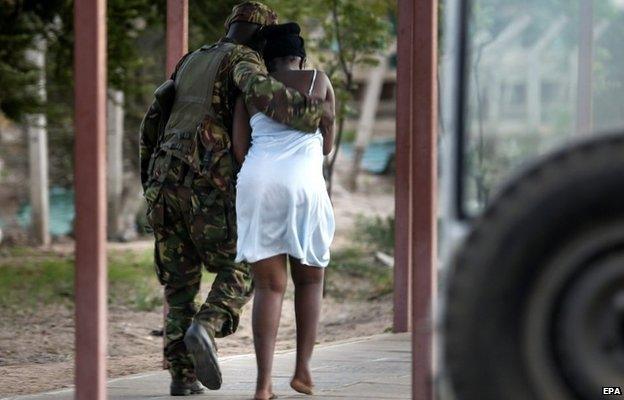
A woman is led away from the scene of an attack at Garissa University in April. A story about that massacre, which killed 147 people, went viral on social media after the Paris attacks on Friday
The most-read story on the BBC News website on Sunday was about a terror attack - but not the one currently dominating the news.
Nearly 7 million people clicked on the headline Kenya university attack kills 147 - a story about an attack on Garissa University, in the north-east of the country, by the Somali militant group al-Shabab. It happened in April 2015.
About three-quarters of the hits on the story came from social media, rather than from the front page of the BBC News website. When older stories resurface in the top 10 list on the BBC News front page, they appear with a date stamp:

The date stamp on an older BBC News story - red circle added for emphasis
In the always-now world of social media though, it appears many people clicked the link their friends had shared, didn't notice the April date on top of the page, and got confused, thinking the Kenya attack was a breaking story.
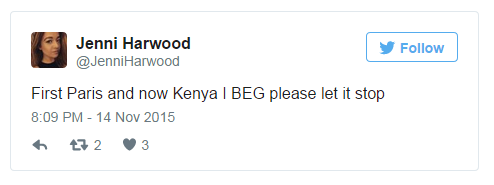
But while some of those clicking on the story were mistaken about timing, others shared it to make a point. They were criticising Western media organisations for allegedly failing to cover the Kenya massacre as prominently as they covered events in Paris. (Other commenting saw the irony of using a BBC story to make that point).
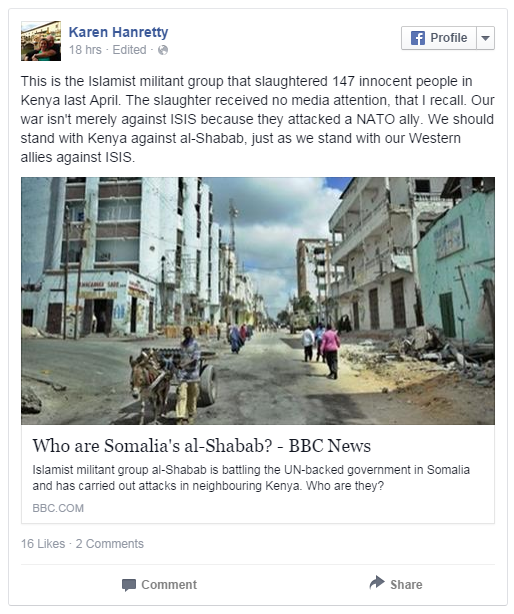

Read more about Garissa

So who was interested in the Garissa story after the Paris attacks? The attention wasn't being driven primarily from Kenya. Around half of the hits on the story came from North America, with another quarter from the UK. In total, the story attracted more than 10 million page views over two days - or about four times as many as it did when the attack actually happened in April.
Meanwhile on Twitter, similar conversations were happening about attacks and natural disasters in other places. The hashtag "Pray For the World" has been used over 400,000 times since Friday, with some trying to broaden the conversation away from just remembering the Paris attacks, and using it to highlight recent violent attacks with high death tolls in Mexico and Baghdad.

Follow BBC Trending on Facebook
Join the conversation on this and other stories here, external.

The hashtag "Pray for Lebanon, external" - a reference to suicide blasts that killed at least 41 in Beirut the day before the Paris attacks - was in particular used more than 800,000 times on Twitter. The vast majority of those tweets came not at the time of the bombs in Lebanon, but after the Paris attacks ("Pray for Paris, external" hashtag has been used more than 10 million times).
The "Pray for..." trend also lumped in other unrelated events. More than 1.6 million people tweeted "Pray for Japan" when news broke over the weekend of a massive undersea earthquake - but unlike the massive devastation in 2011, no-one was killed or injured in that event.
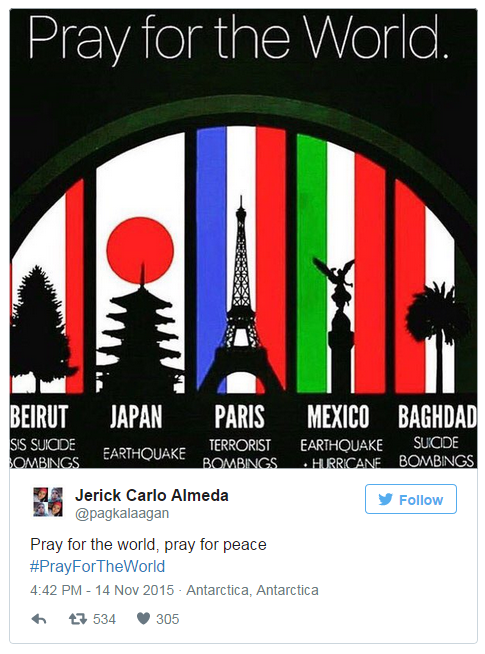
Facebook was criticised by many of its own users who asked why it had turned on its "Safety Check, external" feature, which allows users to alert their networks that they are OK, in response to the events in Paris, but not after the Beirut bombs. In a post, Facebook CEO Mark Zuckerberg said that the feature had only been used for natural disasters prior to Friday.
"We just changed this and now plan to activate Safety Check for more human disasters going forward as well," he wrote, external.
Facebook was also accused of double standards when it gave users the option of putting a filter over their profile photos in the colours of the French flag. The network has offered a similar automated widget before, including a rainbow-coloured filter after the US Supreme Court ruled in favour of same-sex marriage, and one in the orange, green and white of the Indian flag to mark Narendra Modi's visit to Silicon Valley.
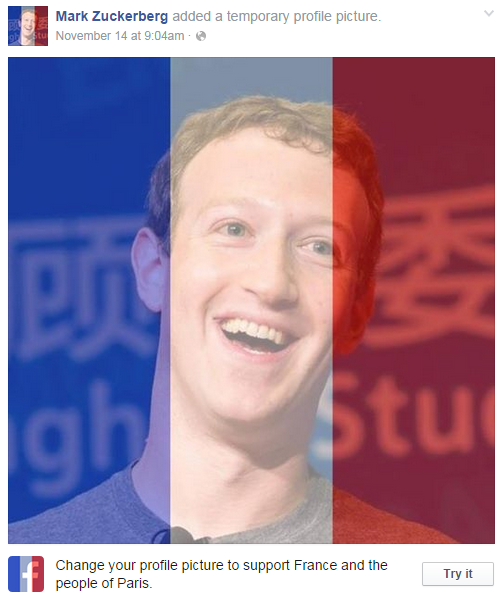
The company declined to comment to BBC Trending about critics online who have asked why other countries and events haven't been similarly commemorated, external. Some users have taken matters into their own hands. Among them, a Nigerian commentator who decried numerous massacres committed in that country by the militant group Boko Haram. He wrote a popular post, external on the subject and put a Nigerian flag filter on his profile photo. Others have been putting Lebanese flag filters, as well as flags of other nations, on their profiles.
Blog by Mike Wendling, external
Additional reporting by Emma Wilson
Next story: Norway is using Facebook to send a stark message to migrants
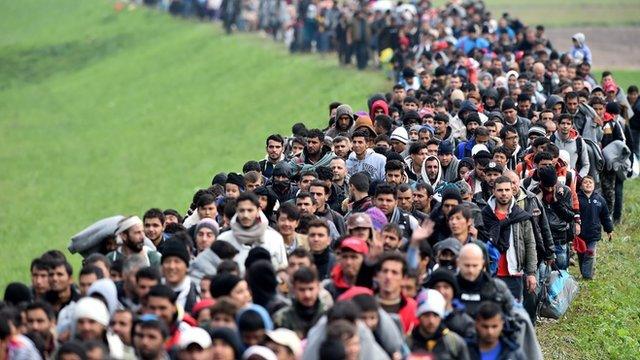
A Facebook page created by a Norwegian government ministry is delivering a stark message to thousands of migrants crossing Europe. READ MORE
You can follow BBC Trending on Twitter @BBCtrending, external, and find us on Facebook, external. All our stories are at bbc.com/trending.